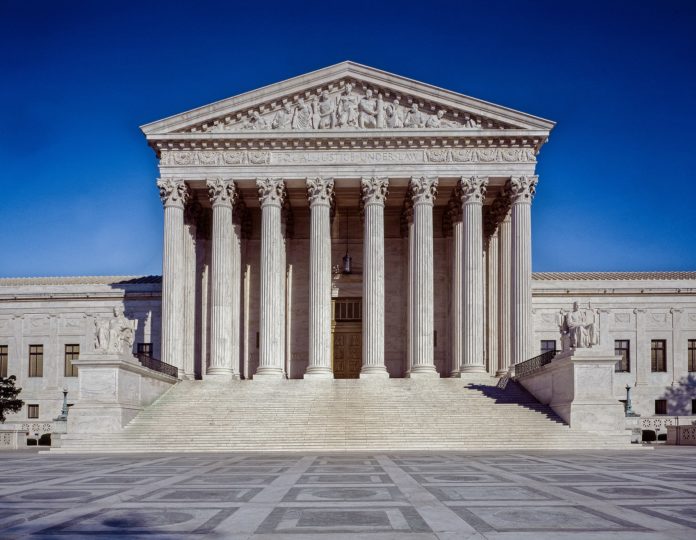
In June, the U.S. Supreme Court granted a petition for a writ of certiorari in a major tax case.
According to the petition, in 2006 Charles Moore and Kathleen Moore made an investment to help launch an overseas company formed to empower India’s underserved rural farmers. Charles Moore’s friend and former co-worker Ravindra “Ravi” Kumar Agrawal saw farmers in India’s impoverished regions didn’t have strong access to basic tools that could be found in American hardware stores, according to the petition, and to improve their lives, he founded the India-based corporation KisanKraft Machine Tools Private Limited to import, manufacture and distribute affordable farming gear.
The petition explained the Moores put up $40,000 and received about 13% of KisanKraft’s common shares as Agrawal retained about 80% ownership and moved to India to manage the business. According to the petition, it was profitable almost from the start and revenues increased every year since its founding. The petition noted KisanKraft reinvested all its earnings to grow the business expanding to serve farmers across India.
The Moores got regular updates from Agrawal on KisanKraft’s activities and annual financial statements, the petition said.
“The Moores never received any distributions, dividends, or other payments from KisanKraft,” the petition added. “And as minority shareholders without any role in KisanKraft’s management, they had no ability to force the company to issue a dividend. For the Moores, it was payment enough that they were able to support KisanKraft’s ‘noble purpose…to improve the lives of small and marginal farmers in India’ and see the good that it was doing.”
The petition explained in 2018, the Moores learned from Agrawal under the recently enacted Mandatory Repatriation Tax, they owed income tax on KisanKraft’s reinvested earnings going back to 2006.
According to the petition, the MRT deemed a portion of KisanKraft’s earnings for each year proportional to the Moores’ ownership stake in 2017 to be the Moores’ 2017 income, even though they hadn’t received money from the company and likely wouldn’t see any for some time, if ever. The Moores had to declare an additional $132,512 as taxable 2017 income and pay another $14,729 in taxes, the petition added.
The petition explained the MRT was enacted as part of the Tax Cuts and Jobs Act of 2017 and it targeted U.S. shareholders owning 10% or more of foreign corporations primarily owned or controlled by people in the U.S. Prior to the MRT, shareholders were usually taxed when the foreign company distributed its earnings, the petition explained.
“The MRT, however, simply deems the corporations’ retained earnings going back to 1986 to be the 2017 income of their U.S. shareholders in proportion to their ownership stakes in 2017,” the petition said.
Under the MRT’S modified version of subpart F, a 9th Circuit Court of Appeals summary explained that was attached to the petition, people in the U.S. owning at least 10% of a controlled foreign corporation are taxed on the controlled foreign corporation’s profits after 1986, regardless of whether the CFC distributed earnings. Additionally going forward, according to the summary, a CFC’s income taxable under subpart F included current earnings from its business.
The petition contended the shareholders are taxed on that deemed “income,” by definition hasn’t been distributed to them, at a rate based on how the corporation held the retained earnings in 2017: 15.5% of earnings held in cash or cash equivalent and 8% otherwise. The petition contended the MRT taxes shareholders irrespective of whether they owned shares at the time the corporation made the earnings on which they’re being taxed and irrespective of whether they could force the corporation to make a distribution, adding all that matters is a given shareholder owned the requisite number of shares in 2017.
“The principal legislative purpose of this one-time tax was to partially fund the TCJA’s shifting of U.S. corporate taxation from a worldwide system toward a territorial one—that is, one where U.S. corporations are taxed only on their domestic-source income,” the petition said. “To accomplish this shift, the statute prospectively relieved U.S. corporations from paying taxes on most distributions received from foreign corporations, including subsidiaries.”
The change, according to the petition, was limited to corporate taxpayers, as individual taxpayers like the Moores remained liable for income tax on distributions they receive.
The Moores filed an action to get a refund of the additional tax they paid under MRT, the petition added, alleging it’s an unappropriated direct tax that violated the U.S. Constitution’s apportionment requirements, contending it taxes them on ownership of personal property (the KisanKraft shares), not on income they realized.
A district court granted the government’s motion to dismiss and denied the Moores’ cross-motion for summary judgment. The 9th Circuit affirmed.
“[The] petitioners renew their contention the MRT is not a permissible income tax, but instead an unconstitutional direct tax lacking apportionment,” the U.S. argued in a brief in opposition. “But the court of appeals correctly rejected that contention because it is unsupported by constitutional text, congressional practice, or this Court’s precedent.”
The U.S., in its opposition brief, contended the court of appeals was right holding the MRT is a “tax[] on incomes” that falls within the 16th Amendment. The U.S. added the petitioner’s arguments run counter to the constitutional text, congressional practice and the U.S. Supreme Court’s precedent.
The question presented before the U.S. Supreme Court is whether the 16th Amendment authorizes Congress to tax unrealized sums without apportionment among the states.
Oral arguments haven’t been scheduled in the case.

